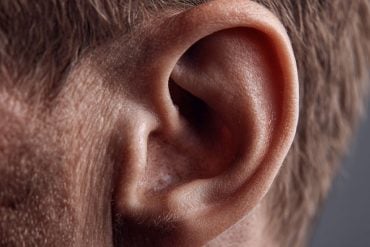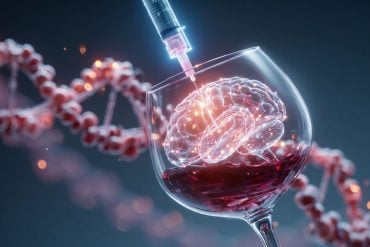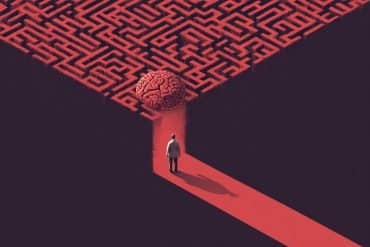Overindulging in high-calorie snacks is partly caused by lapses in a very specific part of the brain, according to a new University of Waterloo study.
The study, published in Psychosomatic Medicine: Journal of Biobehavioral Medicine, is the first to conclusively link reduced operation of the dorsolateral prefrontal cortex with self-restraint in the dietary context.
“It has long been thought that the dorsolateral prefrontal cortex helps to keep automatic, or knee-jerk, reactions in check,” said Professor Peter Hall, senior author on the study. “We discovered that when you temporarily dampen the operation of this particular part of the brain, strongly engrained—and quite universal—preferences for high calorie foods start to hijack people’s thought patterns and even their eating patterns.”
The prefrontal cortex is known to be implicated in the brain’s executive functions, which typically allow people to engage in voluntary control over their behavior.
While prior studies have shown that boosting activity in the prefrontal cortex reduces cravings for unhealthy foods, this is the first study to show that reducing activity leads to more cravings and food consumption.

The study used continuous theta burst stimulation, a form of transcranial magnetic stimulation, to temporarily reduce activity in participants’ left dorsolateral cortex. After receiving theta burst stimulation, participants not only reported greater food cravings for calorie-dense food, but ate more junk food during a taste test than when they received a bogus stimulation.
“This is the first study to demonstrate that taking the prefrontal cortex temporarily offline results in increased snacking,” said Cassandra Lowe, doctoral student in the School of Public Health and Health Systems and lead author on the paper.
The findings will provide a theoretical framework to help shape effective public health interventions, with a focus on preservation of brain health.
“The research suggests that the best solution to effective self-restraint lies in maximizing brain health. Interventions aimed at enhancing or preserving dorsolateral cortex function in healthy populations may reduce the likelihood of obesity and other chronic conditions,” said Hall.
Engaging in aerobic exercise, avoiding alcohol and getting enough sleep are proven methods of maximizing the strength of the prefrontal cortex.
“In the end, if you want to improve your self-control when it comes to snacking, structuring your environment to avoid temptations is crucial; but beyond this, the key is to keep your brain in shape, so that you are up to the task when you encounter temptations. Let’s face it, they are everywhere,” said Hall.
Contact: Nick Manning – University of Waterloo
Source: University of Waterloo press release
Image Source: The image is credited to Natalie M. Zahr, Ph.D., and Edith V. Sullivan, Ph.D. and is in the public domain
Original Research: Full open access research for “The Effects of Continuous Theta Burst Stimulation to the Left Dorsolateral Prefrontal Cortex on Executive Function, Food Cravings, and Snack Food Consumption” by Lowe, Cassandra J. MSc; Hall, Peter A. PhD; Staines, and William R. PhD in Psychosomatic Medicine: Journal of Biobehavioral Medicine. Published online September 2014 doi:10.1097/PSY.0000000000000090






